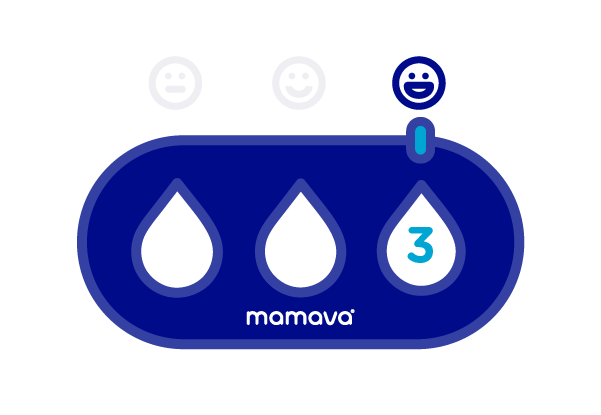California Breastfeeding Laws
California’s breastfeeding protections exceed those of many other states. In addition to the federal FLSA’s PUMP Act that provides workplace lactation accommodation protections for all breastfeeding employees, California laws provide extra levels of support. State law requires public airports to provide lactation spaces, county jails to implement a breastfeeding policy for lactating inmates, and certain hospitals to promote breastfeeding.
We’ve awarded California three drops on our scale.
CA Breastfeeding Laws: In Public
Mothers in California have the right to breastfeed in any public or private place they have a legal right to be. Read the law: ARTICLE 1. General Provisions [11200 - 11218]
CA Breastfeeding Laws: At Work
The federal FLSA’s PUMP for Nursing Mothers Act now protects all breastfeeding employees, but California was the first state to mandate workplace lactation spaces for all employees.
CA law was amended in 2018 to stipulate that the space cannot be a bathroom. The law—modeled after San Francisco’s Lactation in the Workplace Ordinance—requires that all employers provide all breastfeeding employees with break time and a private space to pump at work.
Notably, the law also includes specific requirements for lactation spaces, including the following: spaces must be in close proximity to where breastfeeding employees work, provide a place to sit, a surface for a pump, and electrical outlets. The space must also be located near running water and a refrigerator to store pumped breast milk. Read the laws: CHAPTER 3.8. Lactation Accommodation [1030 - 1033] and Bill 1976
Section 1034 of the CA Labor Code also requires employers to implement a lactation policy to share with all employees.
CA employers who violate these provisions will incur a civil penalty of $100 per violation. Employers with fewer than 50 employees may request an exemption, but must prove hardship. Read the law: SB 142
Both employees and employers can find information on filing a claim here.
CA Breastfeeding Laws: Breastfeeding-Positive Municipalities
San Francisco Breastfeeding Laws
San Francisco was the first U.S. city to implement a city-wide lactation policy (which went into effect in 2018) requiring all employers in San Francisco to provide break time and a lactation space (other than a bathroom) to all breastfeeding employees, including part-time employees. The San Francisco ordinance includes quality standards and stipulates that lactation spaces must be clean, include a chair and a surface for a breast pump, be near a sink, and have easy access to a refrigerator. In addition, all San Francisco businesses must have a written lactation accommodation policy that clearly states that employees have a right to request lactation accommodations. Read the law: ARTICLE 33I: LACTATION IN THE WORKPLACE
California Breastfeeding Information + Resources
CA Breastfeeding Laws: Airports
In California, public airports (those operated by a city, county, or a city and county) are required to provide a private lactation space (that’s not a bathroom) beyond security points for breastfeeding mothers to pump or breastfeed. The space must include at least one chair and an electrical outlet. Read the law: ARTICLE 6. Airports [50470 - 50479]
CA Breastfeeding Laws: Courthouses
Effective July 1, 2024, California law requires superior courts to provide any court user access to a lactation room in any courthouse in which a lactation room is also provided to court employees. The lactation room for court users shall meet all of the requirements of Section 1031 of the Labor Code. The lactation room cannot be a bathroom and must be shielded from view and free from intrusion. Read the law: AB-1576
CA Breastfeeding Laws: County Jails
Every county jail is required to develop and implement a breastfeeding policy for breastfeeding inmates detained in, or sentenced to, a county jail. Read the law: CA AB 2507
CA Law: Human Milk
California Assembly Bill (AB) 3059 requires health plans regulated by the Department of Managed Health Care and polices regulated by the California Department of Insurance to provide coverage for human milk and human milk derivatives. The bill also exempts general acute care hospitals from the requirement to acquire a tissue bank license to store or distribute human milk obtained from a milk bank.
California Breastfeeding Laws: Postsecondary Education
In 2018 California passed a law that requires California Community Colleges and the California State University system to provide a private lactation room for breastfeeding students. Read the law: AB 2785
Breastfeeding mothers are exempt from jury duty if they can provide documentation proving they are currently breastfeeding.
California also has the Hospital Infant Feeding Act, which requires all general acute care hospitals and hospitals that have perinatal units to have an infant-feeding policy that provides breastfeeding information.
The California Breastfeeding Coalition provides resources, information, and education to support breastfeeding. Visit U.S. Breastfeeding Committee for a full list of state breastfeeding coalitions.
Mamava designs solutions to empower breastfeeding and pumping parents on the go, like our freestanding lactation pods and lactation space locator app.
Laws are constantly evolving—which is a good thing! So if we’ve missed something, contact us at [email protected].
Disclaimer: Please consult a professional for legal advice. Mamava’s information on breastfeeding laws is not a substitute for legal counsel.
We'd Love to Help You Further
Employers and Facilities
Breastfeeding People
Mamava’s Breastfeeding Law Rating Key
One drop: State does not have any workplace lactation legislation that exceeds the PUMP Act.
Two drops: State law exceeds the PUMP Act in one of the following ways: 1) Lower threshold for employer exemption); 2) Workplace protections beyond one year; 3) Requirements for lactation spaces (e.g. electrical outlets); 4) Protections for specific populations other than employees (e.g. students).
Three drops: State law exceeds the PUMP Act in at least two of the following ways: 1) Lower threshold for employer exemption); 2) workplace protections beyond one year; 3) requirements for lactation spaces (e.g. electrical outlets); 4) protections for specific populations other than employees (e.g. students).

